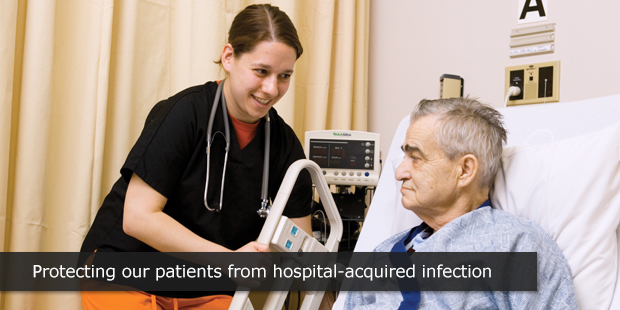
At AHS, our first priority is always on ensuring patients get the care and treatment they need, as safely and effectively as possible.
From time to time – particularly when our hospitals are busy – our acute care and Emergency Department patients may be cared for in an overcapacity space. We have rigorous infection prevention and control practices to help ensure patient and staff health and safety wherever a patient receives their care.
We recognize that these types of treatment spaces are often inconvenient and offer less privacy for patients and their families, but at times of increased capacity we must balance the infection risks and inconvenience with the need to provide timely safe care to all who need it.
To ensure safety and prevent the spread of illness, patients who require isolation precautions are not placed in overcapacity spaces. This applies to all patients from those with a cold to those with influenza and other transmittable diseases.
A decision to place a patient in an overcapacity or shared space is always made in consultation with the patient’s care team. Again, this is about balancing the need for timely care with the possible infection risks of having patients in shared spaces.
To manage this process and further reduce infection risks, patients who are stable and known by unit staff to be close to discharge may be moved into overcapacity spaces such as lounges to make private room spaces available for new admissions.
Visitors to our hospitals can be assured that we are able to deliver safe and effective care to patients in these treatment spaces - patients want timely access to services and at times the inconvenience of these spaces needs to be weighed against possibly delaying treatment.
The addition of 400 new continuing care spaces in the Calgary Zone over the coming months will help free up acute spaces and reduce the need to use rooms in this manner.
Hospital capacity is something that is continually monitored and managed as is it fluctuates from hour to hour and day to day and week to week. At times it is impacted by seasonal illness or weather events.
AHS also continues to invest in improving infection prevention and ranks well when compared to other provinces. Infection prevention is a practice we can all participate in, staff, patients and visitors. Hand washing for instance is the cornerstone to reducing the transmission of infection and improving health outcomes.
Add your comment